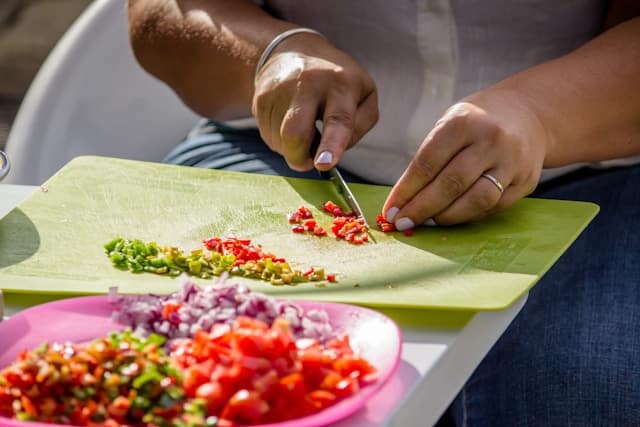Your kitchen is meant to be a place of nourishment, but some everyday items could be exposing you to harmful toxins. From the non-stick pan you fry your eggs into the convenient Keurig machine brewing your morning coffee, certain products contain hidden dangers that can impact your well-being. Here are four common kitchen items that might be doing more harm than good—and what you can use instead.
1. Non-Stick Pans: A Hidden Chemical Risk

Non-stick cookware is praised for its convenience, but many contain perfluoroalkyl and poly-fluoroalkyl substances (PFAS), chemicals linked to health risks like hormone disruption and even cancer. When heated, these chemicals can leach into your food or release toxic fumes into the air. Instead, switch to safer alternatives like cast iron, stainless steel, or ceramic-coated cookware for a healthier kitchen.
2. Plastic Cutting Boards: A Microplastic Problem

You might think plastic cutting boards are a hygienic option, but each time you slice, tiny plastic particles can break off and end up in your food. Over time, these microplastics can accumulate in your body and may contribute to health issues. Bamboo or wooden cutting boards are a much safer alternative, offering durability without the risk of plastic contamination.
3. Keurig Machines: A Bacteria Breeding Ground

Single-serve coffee makers like Keurigs may be convenient, but they can also harbor mold and bacteria inside their water reservoirs and tubing—places that are hard to clean properly. Plus, the plastic K-cups can leach harmful chemicals into your coffee, especially when exposed to high temperatures. Opt for a traditional French press, pour-over coffee maker, or stainless steel espresso machine for a cleaner and healthier brew.
4. Brita Filters: Not as Pure as You Think

Brita and similar water filters claim to purify tap water, but they often fail to remove all harmful contaminants, including heavy metals, bacteria, and certain chemicals. Worse, if not changed regularly, filters can become a breeding ground for mold and bacteria, making your “filtered” water less safe than tap water. Consider investing in a high-quality reverse osmosis system or a solid carbon block filter for truly clean drinking water.
While these kitchen staples may seem harmless, they can introduce unwanted toxins into your food and drinks. Making simple swaps—like using ceramic cookware, wooden cutting boards, a French press, and a high-quality water filter—can help reduce your exposure to harmful chemicals and create a safer kitchen for you and your family. Small changes lead to big health benefits!







